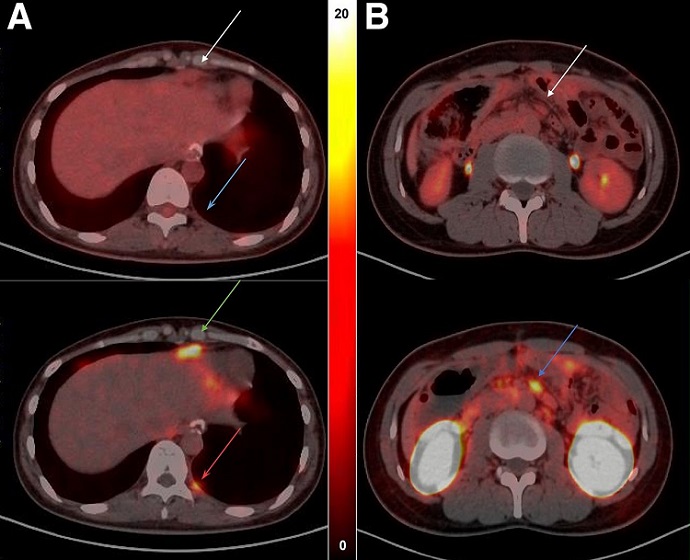New PET Radiotracer Enables Same-Day Imaging of Key Gastrointestinal Cancer Biomarker
Posted on 10 Jun 2024
Gastrointestinal cancers rank among the most prevalent cancers worldwide, contributing to over a quarter of all cancer cases and over one-third of cancer-related deaths annually. The initial symptoms of these cancers can be misleading, and they are often identified at a late stage, typically resulting in a grim prognosis and increased mortality rates. Claudin18.2 (CLDN18.2), a protein prominently expressed in gastrointestinal cancers, serves as a crucial biomarker, and numerous therapies targeting CLDN18.2 are currently being tested in clinical trials. However, there is no standardized test for detecting CLDN18.2; most existing methods use immunohistochemistry, a technique that only examines a limited tissue sample and fails to capture the variability in CLDN18.2 expression across different tumor areas. Now, a new PET radiotracer, 68Ga-NC-BCH, has been shown to enable same-day imaging of CLDN18.2 with its uptake demonstrating a significant correlation with CLDN18.2 levels, which could help oncologists in tailoring and monitoring treatments for their patients.
Researchers at Peking University Cancer Hospital (Beijing, China) initially synthesized the 68Ga-NC-BCH radiotracer and conducted preliminary tests on human gastrointestinal cancer cell lines and mouse models. Subsequently, 11 patients underwent whole-body scans using 68Ga-NC-BCH PET alongside 18F-FDG PET to assess the distribution of the radiopharmaceutical, radiation dosimetry, and the connection between tracer uptake and CLDN18.2 levels. The production of 68Ga-NC-BCH was consistently reliable, showing excellent radiochemical qualities. It displayed rapid clearance from the bloodstream, high specificity for CLDN18.2, and significant selective accumulation in CLDN18.2-positive cells and tumor-bearing mice. In patients, 68Ga-NC-BCH showed notable absorption in the stomach and kidneys and lower uptake in the pancreas. When compared to 18F-FDG, 68Ga-NC-BCH detected additional lesions in the lymph nodes and peritoneum, which are frequently the primary sites of metastasis in advanced gastric cancer.

“The detection of CLDN18.2 expression levels is essential for identifying patients who can benefit from targeted therapies,” said Hua Zhu, PhD, professor at Peking University Cancer Hospital. “In this study, we developed a CLDN18.2-targeting radiotracer and conducted whole-body PET imaging to determine its ability to detect the biomarker.”
“68Ga-NC-BCH PET is a safe, noninvasive imaging method for detecting CLDN18.2 expression in patients,” added Zhu. “The rapid uptake of the radiotracer allows patients to complete the whole imaging workflow within one day, greatly increasing compliance and reducing radiation exposure. This can greatly help oncologists in making treatment decisions.”
Related Links:
Peking University Cancer Hospital














